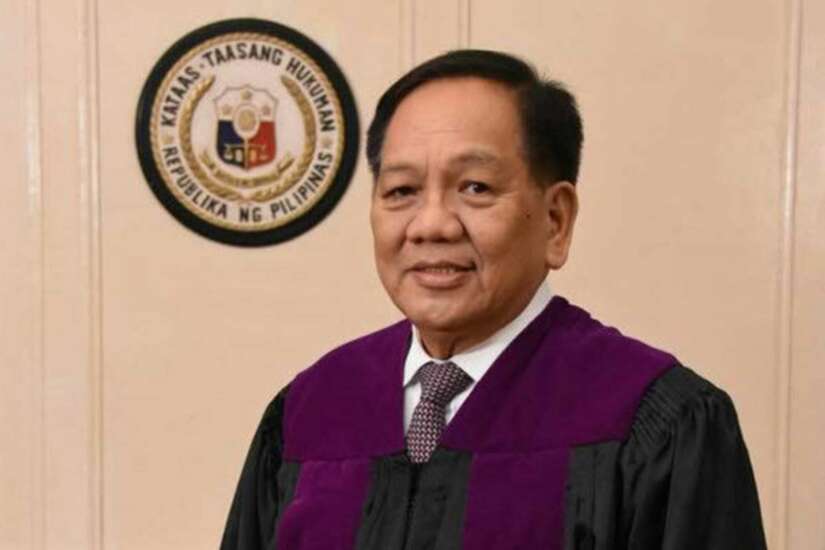CHIEF Justice Diosdado Peralta said that the sheer number of petitions filed before the Supreme Court questioning the constitutionality of the Anti-Terrorism Act of 2020 has “delayed” court action on the controversial legislation.
Peralta pointed out that these petitions — 37 as of this writing — have raised too many issues, prompting them to request the member-in-charge (ponente) to come up with a pattern of common subjects for oral arguments.
“We are now in the process of decision writing. The problem with the too many petitions was that there were so many issues that were raised so what we suggested to the member-in-charge to come up with the issues, what are the common issues? Let’s lump up yung issues into common and then list down issues that are not common, “ Peralta said.
Peralta said that the high court’s planned oral arguments were being hampered by the petitions coming in one after another.
” We thought all the while aabot lang ng 5 petitions kaya hinintay namin ma-file agad lahat lahat na so that we can set for oral arguments.
“In fact you remember we announced that the tentiative schedule of oral argument is September but after we announced that marami ang dumating na petitions raising different issues eh, so we cannot proceed to oral argument if we have not yet determined what actually are the issues, ” Peralta said.
The Chief Justice expressed optimism that when the high court resumes session on November 3 the member-in-charge has already prepared the delineation of issues.
” I hope when we go back to regular session on November 3, she (member-in-charge) will already be ready to submit to us the issues to be argued and then set the preliminary conference kasi we still have to make consultations,” Peralta said.
President Duterte signed a stricter anti-terrorism bill, condemned by critics and rights groups as a weapon to target opponents and stifle free speech.
Duterte has defended the law, saying law-abiding citizens should not fear as it targets terrorists including communist insurgents.
The highly contested provisions of the law are the following:
• section 4 – definition of terrorism;
• section 5 – the threat to commit terrorism;
• section 6 – planning, training, preparing and facilitating the commission of terrorism;
• section 9 – inciting to commit terrorism;
• section 10 – recruitment to and membership in a terrorist organization;
• section 11 – foreign terrorist;
• section 12 – providing material support to terrorists.
• section 25 – designation of terrorist individual, groups of persons, organizations or associations;
• section 26 – proscription of terrorist organizations, associations or group of persons;
• section 27 – preliminary order of proscription
• section 29 – detention without judicial warrant of arrest. #

